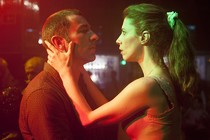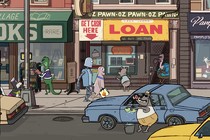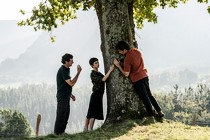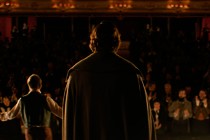Abracadabra: The ghost and Miss Carmen
- Bilbaine director Pablo Berger aims to hypnotise audiences with his latest game of prestige: a colourful, grotesque and exaggerated film that combines dark comedy, fantasy and drama
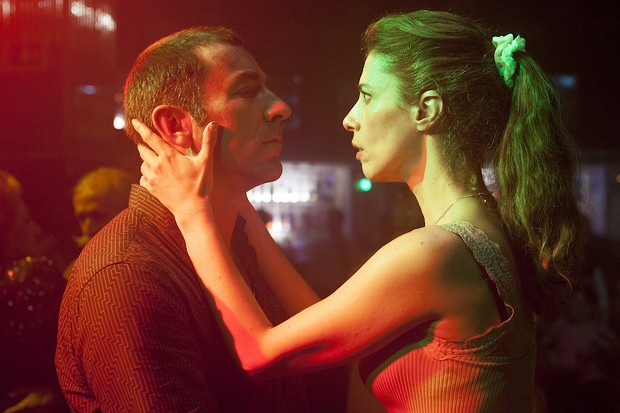
“Film is like dreaming with your eyes open: the filmmaker directs the gaze of the viewer and the latter wakes up when the credits start to roll, because audiences watch to be hypnotised”. These are the words of Pablo Berger, an unaccommodating director who won over critics and audiences alike in search of originality, cinephilia and talent with his first two films: Torremolinos 73 [+see also:
trailer
film profile], inspired by striptease films, Swedish films and landism, starring Candela Peña and Javier Cámara as the stars of homemade porn films; and Blancanieves [+see also:
film review
trailer
interview: Pablo Berger
film profile], his version of the famous classic fairy-tale of Snow White, transposed into a Spain of matadors, betrayals, flamenco and comical bullfighting. Now, the Bilbaine director is once again trying to charm us with Abracadabra [+see also:
trailer
interview: Pablo Berger
film profile], another fairy-tale, this time colourful, Baroque, eccentric and excessive, starring Maribel Verdú, Antonio de la Torre and José Mota, alongside José María Pou, Quim Gutiérrez, Julián Villagrán, Saturnino García and Ramón Barea.
The film, shot in a Madrid that doesn’t hide its inspiration from that terrible, hetero patriarchal world of hoods and marujils portrayed in 1984 by Pedro Almodóvar in his masterful What Have I Done to Deserve This?, is a comedy within a drama, wrapped up in a fantasy film with a touch of thriller thrown in. Berger has this time gone for a mix of genres that struggles to stand its ground. The risk run here by the director, who was decorated with the Ordre des Arts et des Lettres by the French government two years ago, is high, and his mix of disparate elements doesn’t always work: his grotesque humour, which should act as a glue between the different genres, doesn’t raise the laughs necessary to keep audiences enchanted by this story, which is peppered with gypsy costumbrismo, phantasmagoria, satire and pop elements. These include the song by Steve Miller Band that lends its name to the film’s title, which was very popular in 1980s Spain when Berger was still at university.
Perhaps the best of the film is drowned out by its brightness, colour and Baroque pomp: the assertion of female empowerment that underpins the plot starring Carmen (Verdú), a woman who takes control of her life, a sad existence oppressed by the most wretched of machismo, which has been rooted for centuries in a society that nonetheless has not stopped fighting it. Broaching such a delicate theme with humour, rapture and (apparent) levity, trying at the same time to entertain and get through to the wider public, is the biggest quality of this dark story, written by Berger and converted into images by most of the same technical and artistic crew that worked on Blancanieves.
Abracadabra doesn’t hide its writer’s fascination with the distressing Angustia, directed by Bigas Luna, either and, like Woody Allen in many of his films (The Curse of the Jade Scorpion, Midnight in Paris, Scoop and The Purple Rose of Cairo), combines magic and reality: here too, thanks to fantasy devices, ordinary people experience some incredible things. And so, hypnotised by our imaginations, we too can escape from harsh reality, as does the protagonist of this film which was produced byArcadia Motion Pictures and Atresmedia Cine in association with France (Noodles Production) and Belgium (Scope Pictures), and in partnership with Movistar Plus+ with the support of Eurimages. Sales are being handled by Parisian company Films Distribution; in Spain, the film is being released by Sony Pictures Releasing Spain.
(Translated from Spanish)
Did you enjoy reading this article? Please subscribe to our newsletter to receive more stories like this directly in your inbox.














